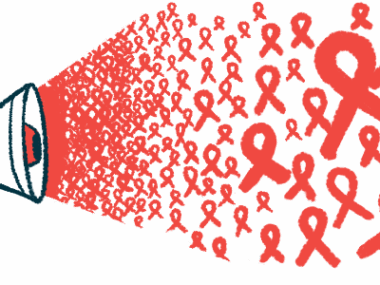Girl with biliary atresia spotlighted in 2024 ALF Liver Life Walk
Event comes as startup gets funding for diagnostic test
Written by |

Five-year-old Sadie Sellers, who was born with biliary atresia, is the focus of a fundraising event designed to raise awareness of and funds for liver disease.
She’ll be “National LIVEr Champion” at the 2024 Liver Life Walk event, sponsored by the American Liver Foundation (ALF).
The annual event brings together people affected by any of the more than 100 types of liver disease. Walks will be hosted at more than a dozen locations across at least 16 U.S. states through October. ALF also will host a virtual walk for those unable to attend in person.
“Liver Life Walk has been a signature event” for ALF since 1999, Lorraine Stiehl, CEO of ALF, said in a foundation press release. Funds raised through the event help ALF “to continue providing valuable resources to liver patients and their families, fund critical liver disease research, and advance public health education and improved patient treatment and coverage,” Stiehl said.
Biliary atresia is a liver disease in infants in which the ducts that carry the digestive fluid bile from the liver to the gallbladder and intestines are blocked and bile flow is stalled, a condition called cholestasis.
Without effective treatment, liver damage and scarring (fibrosis) quickly accumulate. That can lead to life-threatening liver failure requiring a liver transplant.
“In 2019, after the birth of our twins Sadie and Stokely, we received the devastating news that Sadie had been diagnosed with biliary atresia and would need a new liver,” said Ellen Sellers, Sadie’s mother.
Sadie had a surgery called the Kasai procedure, which has been shown to slow or prevent the need for a liver transplant when done early in the disease course, when she was 3 years old.
“Unfortunately, her health took a critical turn, leading to her placement on the liver transplant list at Duke Children’s Hospital,” her fundraiser page for the event says.
“After an excruciating three-month wait, her life was saved by a successful liver transplant,” Ellen Sellers said.
Sadie “can show the world that organ donations save lives, and liver disease continues to affect lives every day,” she said.
Startup gets funding for biliary atresia diagnostic test
Separately, Arizona-based startup Dx4Liver said it received $30,000 to support its work developing a fast biomarker diagnostic test for biliary atresia. The funding comes from the Arizona Bioindustry Association as part of the Flinn Foundation’s 2024 Bioscience Entrepreneurship Program.
Doctors diagnose biliary atresia with a series of noninvasive or minimally invasive tests that help rule out other causes of liver disease. That’s usually followed by a gold-standard procedure called a cholangiogram that can definitively identify bile duct blockage.
Although effective, running these tests and receiving the results can take some time. To help overcome that challenge, Dx4Liver designed a simple blood test to look for a key biliary atresia biomarker, with results returned the same day.
The test measures levels of matrix metalloproteinase-7, or MMP7, an enzyme that’s found at higher than normal levels in the livers of babies with biliary atresia, where it is believed to contribute to liver fibrosis.
Studies have indicated MMP7 may be a good biomarker for diagnosing the rare liver disease and that it can accurately differentiate biliary atresia from other causes of cholestasis in infants.
Dx4Liver expects its same-day blood test will help doctors reach an accurate diagnosis more quickly, enabling Kasai surgery to happen sooner and improving clinical outcomes for babies with biliary atresia.
This also will reduce overall healthcare costs for patients and their families, according to the company.
The test can be ordered directly on the company website.
Dx4Liver last year was an awardee of the 2023 Arizona Innovation Challenge program, another initiative to help early-stage companies advance their innovations.


